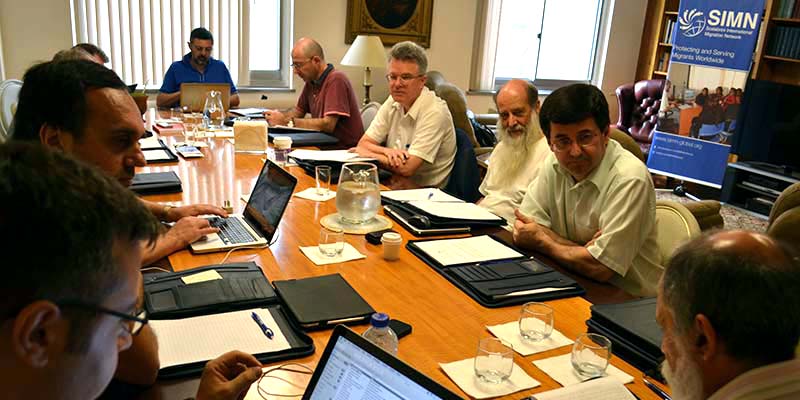The phenomenon of human mobility is multifaceted and presents complex challenges for the approach of a congregation like the Scalabrinian one, committed as it is for almost 130 years to the service of migrants and refugees.
This is the reason why the General Direction of the Missionaries of St. Charles – Scalabrinians, as indicated by the General Chapter (CG XIV, 12), convened representatives of different areas of specific service in New York from 21 to 23 July: the Scalabrini International Migration Institute, the ITESP of San Paolo, the Communication sector, study centers, the SIMN, the network of the AOS and the Houses of Migrants, the ecclesial bodies and the General Management, P. Alfredo J. Goncalves, vicar general.
The first step of the meeting was the clarification of the objectives and the proposed methodology underlying the Strategic Plan between the departments and areas of the Congregation: the presence of Michael P. Hoffman, an expert on resource development for catholic entities, made clear the task of the members. Keywords, strengths, but also the challenges facing a congregation that wishes to operate as one body in the field of migration emerged during the conversation. Over the rest of the morning every representative presented a summary of their current work and synergy with other areas, the basic premise to know, judge and then to take action.
The first day ended with the common definition of the mission, vision and goals between departments and areas of the Congregation, on the one hand, and common strategies between the four services and networks of areas on the other. Participants stressed the vision about the people on the move of the Good Shepherd – with the living example of Blessed Scalabrini, putting in the first place the promotion of every migrant, as expressed in the mission that different areas already have put into practice, and the holistic Christian vision on the phenomenon as its contribution to the animation of the local churches for an ecumenical openness towards migrants.


